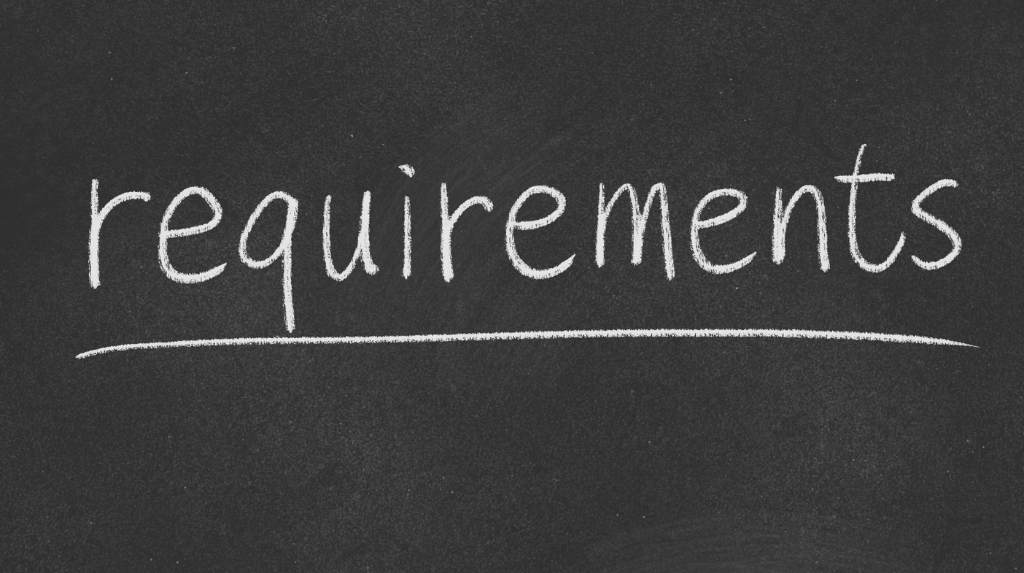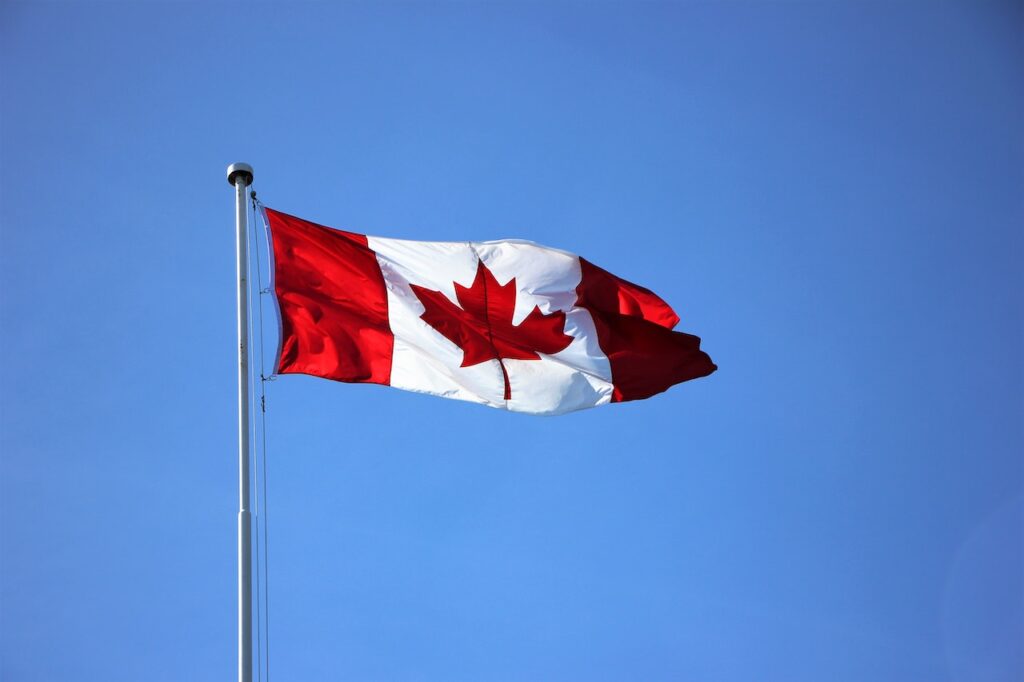Canada Permanent Residency (PR) refers to the status granted to individuals who are not Canadian citizens but have been authorized to live, work, and study in Canada indefinitely. Permanent residents enjoy many of the same rights as citizens, including access to social benefits, but they remain citizens of their home countries unless they apply for Canadian citizenship.
Benefits of Becoming a Canada Permanent Residency
Becoming a permanent resident in Canada offers numerous advantages:
- Right to Live and Work: PR holders can live, work, or study anywhere in Canada without restrictions.
- Access to Social Benefits: They are eligible for most Canadian citizens’ social benefits, including healthcare and education for children.
- Pathway to Citizenship: Permanent residents can apply for Canadian citizenship after meeting specific residency requirements.
- Family Sponsorship: PR holders can sponsor family members for permanent residency, allowing their loved ones to join them in Canada.
- Protection Under Law: They are protected under Canadian law and the Canadian Charter of Rights and Freedoms.
Difference Between Canada Permanent Residency and Citizenship in Canada
While both PR and citizenship confer rights, there are key differences:
| Feature | Permanent Resident (PR) | Citizenship |
| Status | Non-citizen | Full citizen |
| Passport | Requires home country passport | Eligible for a Canadian passport |
| Voting Rights | Cannot vote | Can vote |
| Political Office | Cannot hold office | Can hold office |
| Residency Obligation | Must reside in Canada for 730 days in 5 years | No residency requirement |
| Job Restrictions | Some jobs may require security clearance | No job restrictions |
| Deportation | Can be deported for violations | Cannot be deported |
Permanent residents must maintain their status by fulfilling residency obligations, while citizenship is permanent and does not require renewal.
Eligibility Criteria for Canada Permanent Residency
To qualify for Canada PR, applicants must meet several criteria:
- Age: There is no specific age limit, but applicants between 18 and 35 typically receive more points under the Express Entry system.
- Education: A higher level of education can increase eligibility. Applicants must have their educational credentials assessed.
- Language Proficiency: Proficiency in English or French is essential. Applicants must take an approved language test and achieve a minimum score.
- Work Experience: Relevant work experience is crucial. Applicants generally need at least one year of work experience in a skilled occupation.
- Adaptability: Factors such as having family in Canada or previous study or work experience in the country can enhance eligibility.
Express Entry System
The Express Entry System is Canada’s primary pathway for skilled workers, consisting of three main programs:
- Federal Skilled Worker Program (FSWP): Designed for skilled professionals with foreign work experience. Applicants are assessed based on age, education, language proficiency, and work experience. Successful candidates receive an Invitation to Apply (ITA) based on their Comprehensive Ranking System (CRS) score.
- Federal Skilled Trades Program (FSTP): This program targets skilled tradespeople who have qualifications and experience in specific trades. Applicants must demonstrate relevant work experience and meet certain job offer requirements.
- Canadian Experience Class (CEC): Aimed at individuals who have already gained skilled work experience in Canada. Candidates must have at least one year of full-time work experience in a Canadian job within the last three years.
The Express Entry system is known for its efficiency, with processing times typically around six months. It allows candidates to be nominated by provinces, which can significantly enhance their CRS score.
Provincial Nominee Programs (PNPs)
Each Canadian province and territory operates its own Provincial Nominee Program (PNP), allowing them to nominate candidates who meet local labor market needs. PNPs are beneficial for those who may not qualify under the federal Express Entry system but possess skills in demand in a specific province.
- Candidates typically need a job offer or a connection to the province.
- Once nominated, they can apply for permanent residency through the federal government, often with expedited processing times if using the Express Entry stream.
Family Sponsorship
Family Sponsorship enables Canadian citizens and permanent residents to sponsor their family members to immigrate to Canada. This program covers:
- Spouses
- Common-law partners
- Dependent children
- Parents
- Grandparents
The sponsorship process involves submitting two applications: one for sponsorship and another for permanent residency. Processing times can vary but generally take around 12 months for spousal applications.
Startup Visa Program
The Startup Visa Program is designed for entrepreneurs looking to establish innovative businesses in Canada. To qualify, applicants must secure a commitment from a designated Canadian venture capital fund, angel investor group, or business incubator. This program not only provides a pathway to PR but also supports business development in Canada.
- Successful applicants can bring their families and enjoy access to Canada’s robust economy while contributing to job creation and innovation.
How to Apply for Canada PR through Express Entry
Profile Creation
Check Eligibility: Before creating a profile, assess your eligibility for one of the three federal programs under Express Entry:
- Federal Skilled Worker Program (FSWP)
- Federal Skilled Trades Program (FSTP)
- Canadian Experience Class (CEC)
Create Your Profile: Use the online tool to answer eligibility questions and create your Express Entry profile. You will need to provide details about your education, work experience, language proficiency, and other qualifications. Ensure you have documents ready, such as language test results and educational credential assessments.
Comprehensive Ranking System (CRS): Once your profile is submitted, it will be ranked based on the CRS, which assigns points based on factors like age, education, work experience, and language skills. Higher scores improve your chances of receiving an Invitation to Apply (ITA).
Receive an ITA: The Canadian government conducts regular draws from the pool of candidates. If your CRS score meets or exceeds the cut-off for a specific draw, you will receive an ITA to apply for permanent residency.
Submit Application: After receiving an ITA, you have 60 days to submit a complete application with all required documents. Processing times typically take around six months.
Step-by-Step Guide to Apply for PNP
Applying through a Provincial Nominee Program (PNP) can enhance your chances of obtaining PR:
- Research-Specific Provinces: Each province has its criteria and streams tailored to its labor market needs. For example:
- Ontario PNP: Focuses on skilled workers with job offers in high-demand sectors.
- British Columbia PNP: Targets tech workers and entrepreneurs.
- Alberta PNP: Prioritizes candidates with strong ties to Alberta or job offers in key industries.
- Meet Provincial Requirements: Review the specific requirements for the province you are interested in. This may include having a valid job offer or relevant work experience.
- Apply for Nomination: Apply for the chosen province’s PNP. If nominated, you will receive additional points toward your CRS score if applying through Express Entry.
- Submit Express Entry Profile: If nominated, update your Express Entry profile with the nomination details and await an ITA.
How to Improve Your CRS Score for Canada Permanent Residency
Enhancing your CRS score can significantly increase your chances of receiving an ITA:
- Language Tests: Achieving higher scores in English or French language tests (like IELTS or TEF) can boost your points significantly.
- Job Offers: Securing a valid job offer from a Canadian employer can add substantial points to your CRS score.
- Educational Credentials: Obtaining an Educational Credential Assessment (ECA) can validate your foreign education and increase your score.
- Work Experience: Gaining more skilled work experience or obtaining Canadian work experience can also improve your CRS ranking.
List of Documents Needed for Canada Permanent Residency Application
Mandatory Documents
- Valid Passport: A current passport or travel document, including the bio-data page.
- Language Proficiency Test Results: Results from approved tests like IELTS (for English) or TEF (for French).
- Educational Credential Assessment (ECA): An assessment report from an approved organization to validate foreign educational credentials.
- Proof of Work Experience: Letters from previous employers detailing job titles, responsibilities, duration of employment, and salary.
- Police Clearance Certificates: To demonstrate that you have no criminal record.
- Medical Examination Confirmation: A medical exam report from an approved physician to ensure you meet health requirements.
- Digital Photographs: Passport-sized photos that meet specific requirements set by the Canadian authorities.
- Birth Certificates: For all family members included in the application.
- Marriage Certificate: If applicable, to prove marital status.
- Proof of Funds: Documentation showing that you have sufficient funds to support yourself and your family upon arrival in Canada.
Additional Documents (If Applicable)
- Divorce Certificate or Legal Separation Agreement: If applicable, to clarify marital status.
- Adoption Certificate: For adopted children included in the application.
- Common-Law Union Documents: If applicable, to prove the relationship status.
- Proof of Relationship to a Relative in Canada: If you have relatives in Canada who can support your application.
Proof of Funds for Canada Permanent Residency
To qualify for PR through Express Entry or PNPs, applicants must demonstrate they have enough funds to support themselves and their dependents after arriving in Canada. The required amount varies based on family size:
| Number of Family Members | Required Funds (CAD) |
| 1 | 13,757 |
| 2 | 17,127 |
| 3 | 21,055 |
| 4 | 25,564 |
| 5 | 29,606 |
| 6 | 33,408 |
| 7 or more | Additional 3,300 per person |
These funds must be readily available and can include bank statements, investment accounts, and employment records.
Minimum Requirements for Express Entry and PNP
For Express Entry:
- Candidates must meet eligibility criteria for one of the three federal programs (FSWP, FSTP, CEC).
- A minimum CRS score is required based on the latest draw results.
For PNP:
- Each province has its criteria and may require a job offer or specific skills in demand within that province.
Common Mistakes to Avoid in Your Canada Permanent Residency Application
While these success stories are inspiring, applicants should be aware of common mistakes that can lead to delays or rejections:
- Incomplete Documentation: Failing to provide all required documents can result in application delays. Ensure you have all necessary paperwork ready before submission.
- Incorrect Information: Providing inaccurate information or misrepresenting details can lead to serious consequences, including bans from reapplying.
- Missing Deadlines: Be mindful of deadlines for submitting applications and documents after receiving an ITA. Missing these deadlines can jeopardize your chances of obtaining PR.
- Neglecting Proof of Funds: Ensure you demonstrate sufficient funds to support yourself and your family upon arrival in Canada. Failure to provide adequate proof can lead to application rejection.
- Not Seeking Professional Help: Many applicants underestimate the complexity of the immigration process. Consulting with immigration professionals can help navigate potential pitfalls and improve your chances of success.
Canada PR for Nurses and Healthcare Workers
Immigration Programs for Healthcare Professionals
- Federal Skilled Worker Program (FSWP): Nurses can apply under this program if they have at least one year of relevant work experience in the last ten years, a minimum Canadian Language Benchmark (CLB) score of 7, and meet educational requirements.
- Canadian Experience Class (CEC): This pathway is suitable for those who have gained at least one year of work experience in Canada within the last three years. Applicants must also meet language proficiency requirements.
- Provincial Nominee Programs (PNPs): Various provinces have specific streams for healthcare professionals:
- Ontario: Human Capital Priorities Stream.
- British Columbia: Healthcare Professional category.
- Saskatchewan: International Health Worker EOI pool.
- Nova Scotia: Labour Market Priorities Stream.
- New Brunswick: Internationally Educated Nurses program.
These programs allow provinces to nominate candidates who can address local labor shortages in healthcare.
- New Immigration Stream for Health Workers: Recently announced initiatives focus on fast-tracking PR applications for health workers, including nurses. This stream aims to streamline the process and improve healthcare access across Canada.
How Students Can Transition from a Study Permit to PR in Canada
International students studying in Canada can transition to permanent residency through several pathways:
- Post-Graduate Work Permit (PGWP): After completing a recognized program, students can apply for a PGWP, allowing them to work in Canada for up to three years depending on the length of their study program. This work experience is valuable when applying for PR.
- Canadian Experience Class (CEC): Once students gain work experience through the PGWP, they may qualify under the CEC pathway, which requires at least one year of skilled work experience in Canada.
- Express Entry System: Students can create an Express Entry profile after gaining work experience and may receive additional points for Canadian education and work experience, improving their chances of receiving an Invitation to Apply (ITA) for PR.
Family Sponsorship: Bringing Your Loved Ones to Canada
Family sponsorship is another avenue through which Canadian citizens and permanent residents can reunite with their loved ones:
- Spouse or Common-Law Partner: Canadian citizens or PR holders can sponsor their spouse or common-law partner for PR, allowing them to live and work in Canada.
- Dependent Children: Parents can sponsor dependent children under 22 years of age.
- Parents and Grandparents: There are specific programs for sponsoring parents and grandparents, which often involve a lottery system due to high demand.
Best Provinces for New PRs in Canada
1. Ontario
Ontario is the most popular province for newcomers, receiving nearly half of all new immigrants in Canada. The province boasts a robust economy, primarily driven by industries such as finance, technology, and manufacturing. Major cities like Toronto and Ottawa offer diverse job opportunities and vibrant cultural scenes. However, the cost of living, particularly in Toronto, can be high, with housing prices significantly impacting budgets. Despite this, the quality of life and availability of services make Ontario a top choice for many immigrants.
2. British Columbia
British Columbia (BC) is renowned for its stunning natural landscapes and mild climate. Vancouver, the largest city in BC, offers a thriving job market, especially in the technology, film, and tourism sectors. The province is also known for its outdoor lifestyle, attracting those who enjoy nature and recreational activities. While the cost of living in Vancouver is high, other areas like Victoria provide more affordable options. BC’s diverse economy and cultural richness make it an appealing destination for newcomers.
3. Alberta
Alberta is recognized for its strong economy driven by oil and gas industries but has diversified into technology and agriculture as well. Cities like Calgary and Edmonton offer numerous job opportunities with relatively lower living costs compared to Ontario and BC. Alberta’s sunny climate contributes to a pleasant lifestyle, although winters can be harsh. The province’s Express Entry stream is also favorable for PR applicants due to lower Comprehensive Ranking System (CRS) score requirements.
4. Quebec
Quebec stands out for its unique culture and French-speaking population. Cities like Montreal offer vibrant arts scenes and diverse communities. The province has specific immigration pathways that cater to French speakers, making it easier for them to settle in Canada. While the cost of living is generally lower than in Ontario or BC, newcomers should be prepared for cultural adaptation challenges.
5. Saskatchewan
Saskatchewan is increasingly popular among new immigrants due to its low cost of living and high demand for skilled workers. The province has various immigration programs that facilitate PR applications for international students and skilled workers alike. With a smaller population, newcomers often find it easier to integrate into communities.
Living in Canada: What New Immigrants Need to Know
Housing
Housing options vary widely across provinces. Major cities typically have higher rental prices; newcomers should consider their budget when choosing where to live. Many provinces offer resources to help newcomers find affordable housing.
Healthcare
Canada provides universal healthcare coverage to residents. New immigrants should apply for their health cards as soon as they arrive to access medical services without out-of-pocket expenses.
Schools
Canada boasts a strong education system with public schools available to children of PR holders at no cost. Many provinces also have excellent post-secondary institutions that are accessible to international students.
Cultural Adaptation
Cultural integration can be one of the most significant challenges for newcomers. Engaging with local communities through events or cultural organizations can help ease this transition.
Canada PR Processing Times and Updates
As of December 2024, the processing times for various immigration applications are as follows:
- New PR Cards: Approximately 24 days.
- PR Card Renewals: Around 47 days.
- Citizenship Applications: About 7 months.
The Immigration, Refugees and Citizenship Canada (IRCC) regularly updates these timelines to reflect current workloads and processing efficiency. Staying informed about these changes is crucial for applicants to plan their moves effectively and avoid unexpected delays in their immigration journey.
How to Get a Job Offer to Boost Your PR Application
Securing a job offer can significantly enhance your PR application, especially under the Express Entry system. Here are some tips for finding employment in Canada before immigrating:
- Leverage Online Job Portals: Websites like Indeed, Workopolis, and LinkedIn are valuable resources for job hunting. Tailor your resume to Canadian standards.
- Networking: Connect with professionals in your field through LinkedIn or industry-specific forums. Networking can lead to job referrals and opportunities.
- Recruitment Agencies: Consider working with recruitment agencies that specialize in your industry. They can provide insights into job openings and help match you with potential employers.
- Canadian Job Fairs: Participate in virtual or local job fairs targeting international candidates. These events often feature employers looking for skilled workers.
- Express Entry Job Bank: If you create an Express Entry profile, you can access the Job Bank, which lists employers who are willing to hire immigrants.
Can You Lose Your Canada PR?
Permanent residents must adhere to specific residency obligations to maintain their status. Key points include:
- Residency Requirement: PR holders must reside in Canada for at least 730 days within five years. Failure to meet this requirement may result in losing PR status.
- PR Card Renewal: When renewing a PR card, applicants must demonstrate they have met residency obligations. If not, their renewal may be denied.
PR to Citizenship: The Pathway to Becoming a Canadian Citizen
The pathway from PR to citizenship involves several steps:
- Timeframe: Generally, PR holders can apply for citizenship after living in Canada for at least three years within the last five years.
- Requirements: Applicants must demonstrate language proficiency (English or French), knowledge of Canadian history and values, and file taxes if required under the Income Tax Act.
- Application Process: The application process includes submitting forms, paying fees, and attending an interview or test on Canadian knowledge.
How Consultants Can Help with Canada PR Applications
Navigating the Canadian immigration system can be complex. Professional immigration consultants offer several benefits:
- Expert Guidance: Consultants provide insights into the best immigration pathways based on individual circumstances.
- Application Preparation: They assist in preparing and reviewing applications to ensure all documents are complete and accurate, reducing the risk of delays or rejections.
- Regulatory Knowledge: Immigration consultants stay updated on changing policies and procedures, helping applicants adapt their strategies accordingly.
How Law and Visas Can Help?
At Law and Visas, our team of expert immigration consultants is here to make your travel to Canada straightforward and successful. Whether you’re applying for a Permanent Residence, Visitor Visa, or Study Visa, we handle every step from preparing your application to gathering the required documents.
Our immigration Consultants and Lawyers ensure that your application meets the highest standards, with no details missed. We’ll also keep you informed throughout the process and coordinate with the immigration office or embassy on your behalf.
Law and Visas has a strong record of helping clients secure the visas/permits they need in Canada. Call us today at +234 812 5505 986 to learn how we can assist you.





